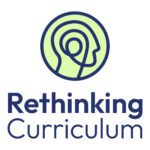 This article has been published as part of the Rethinking Curriculum project, kindly funded by The Helen Hamlyn Trust.
This article has been published as part of the Rethinking Curriculum project, kindly funded by The Helen Hamlyn Trust.
What is experiential learning?
The term ‘experiential learning’ is often used to refer to ‘learning by doing’ or learning from experience. Historically, much theory and research in this area has tended to relate to adult learning, and typically considers the nature of learning that often happens in the workplace, where adults learn ‘on the job’, acquiring new skills and understanding through active experimentation and reflection (Kolb, 1984). However, many educators argue that ‘learning through experience’ can be valuable for learners of all ages.
There is no universally agreed definition of what ‘experiential learning’ means, however Ranken et al. (2023) draw on a range of theoretical perspectives to offer a helpful starting point, which can be summarised as:
- learners actively participating in a tangible experience (sometimes referred to as concrete experience)
- these experiences act as a foundation or stimulus for learning
- this process would usually include an element of reflection.
Because there is not a universal agreement in defining experiential learning, there is sometimes confusion and overlap between this and other approaches including:
- place-based learning
- outdoor learning
- inquiry-based learning
Whilst each of these may indeed provide opportunities for experiential learning, they must also be recognised as distinct approaches each with their own specific characteristics.
References
Kolb, D. A. (1984). Experiential learning: Experience as the source of learning and development (Vol. 1). Englewood Cliffs, NJ: Prentice-Hall.
Ranken E, Manyukhina Y, Wyse D & Bradbury A (2023) Experiential Learning for Children Aged 4-14: A Rapid Evidence Assessment. Helen Hamlyn Centre for Pedagogy (0 – 11 years), UCL Institute of Education: London, UK. Available at: https://discovery.ucl.ac.uk/id/eprint/10173743/ (accessed on 29 April 2024)
Tools and resources
As part of the Rethinking Curriculum project, we have created a number of bespoke resources to develop your understanding of effective experiential curriculum development. These resources are designed to explore the distinct characteristics of this pedagogical approach, understand what this could look like in practice and make informed decisions about whether this might be appropriate for your school and students.
We encourage you to engage with the following:
Read our research review
The Helen Hamlyn Centre for Pedagogy carried out a Rapid Research Review at the beginning of the Rethinking Curriculum project. This review outlines various findings around experiential learning in primary schools and what should be considered in this approach. We draw on this comprehensive research review to provide a summary of the approach, along with potential implications for primary classroom practice.
Read this case study
Wyborne Primary school have written a case study to share their journey in implementing an experiential curriculum in their school. They have shared their process and also how they overcame challenges. This case study could be used to understand the process further but is not intended to be replicated as we strongly believe that all schools should be delivering for their community and circumstances.
Watch this webinar
We hosted a webinar with Joe Hallgarten, Akosua Acheampong, Pen Hay and James Seargant to share their experiences of implementing an experiential curriculum. This recording could be re-watched with your school leadership or teaching teams to begin to explore the purpose and application of an experiential curriculum. To support with this, we have prepared a range of reflective questions to facilitate discussion and consider actions forward.
Listen to this podcast
We are delighted to share a short podcast with James Seargant, Headteacher of Wyborne Primary school in Greenwich, about why the school incorporated an experiential focus to their curriculum and how they implemented this.
Use this evaluation tool
We have created an evaluation tool to be used with your school leadership teams to develop understanding of where your current curriculum is in terms of introducing and embedding experiential learning. The aim of using this tool is to celebrate and acknowledge the work you are already doing but also to refine actions going forward.
This tool could help with reviewing the curriculum at a whole school level, ensuring that expectations of experiences within the curriculum are relevant and catered for effectively. It could also support teacher development in the planning and application of the delivery methods.
This tool is intended to be used alongside the Rethinking Curriculum Evaluation Framework.
Use this document to explore how this approach aligns with the National Curriculum
As part of this project, schools asked for a tool to map how specific curriculum approaches aligned with the current National Curriculum. We invite you to use this document to further develop and refine your curriculum vision.
Go further with our reading and resources list
We have created a list of further reading and resources to deepen your understanding of experiential curriculum development. These include research articles, case studies and webinars. We have ensured that all resources are open access or available to members of The Chartered College of Teaching. Please click the link below to continue your learning:


 This article has been published as part of the Rethinking Curriculum project, kindly funded by The Helen Hamlyn Trust.
This article has been published as part of the Rethinking Curriculum project, kindly funded by The Helen Hamlyn Trust.








